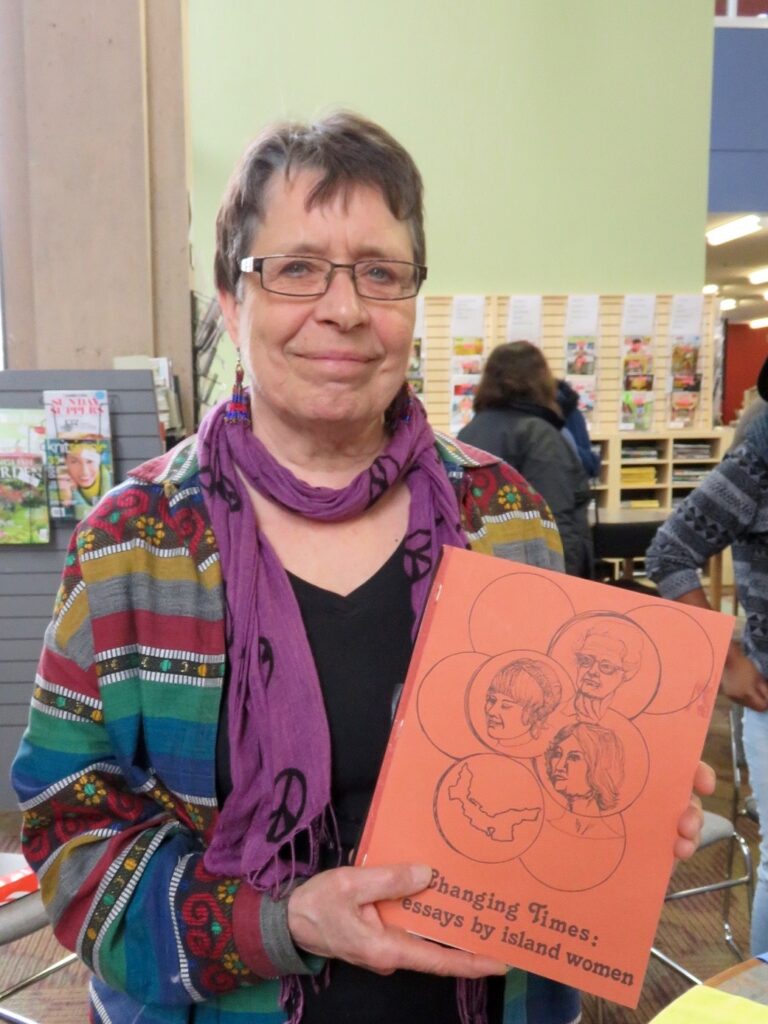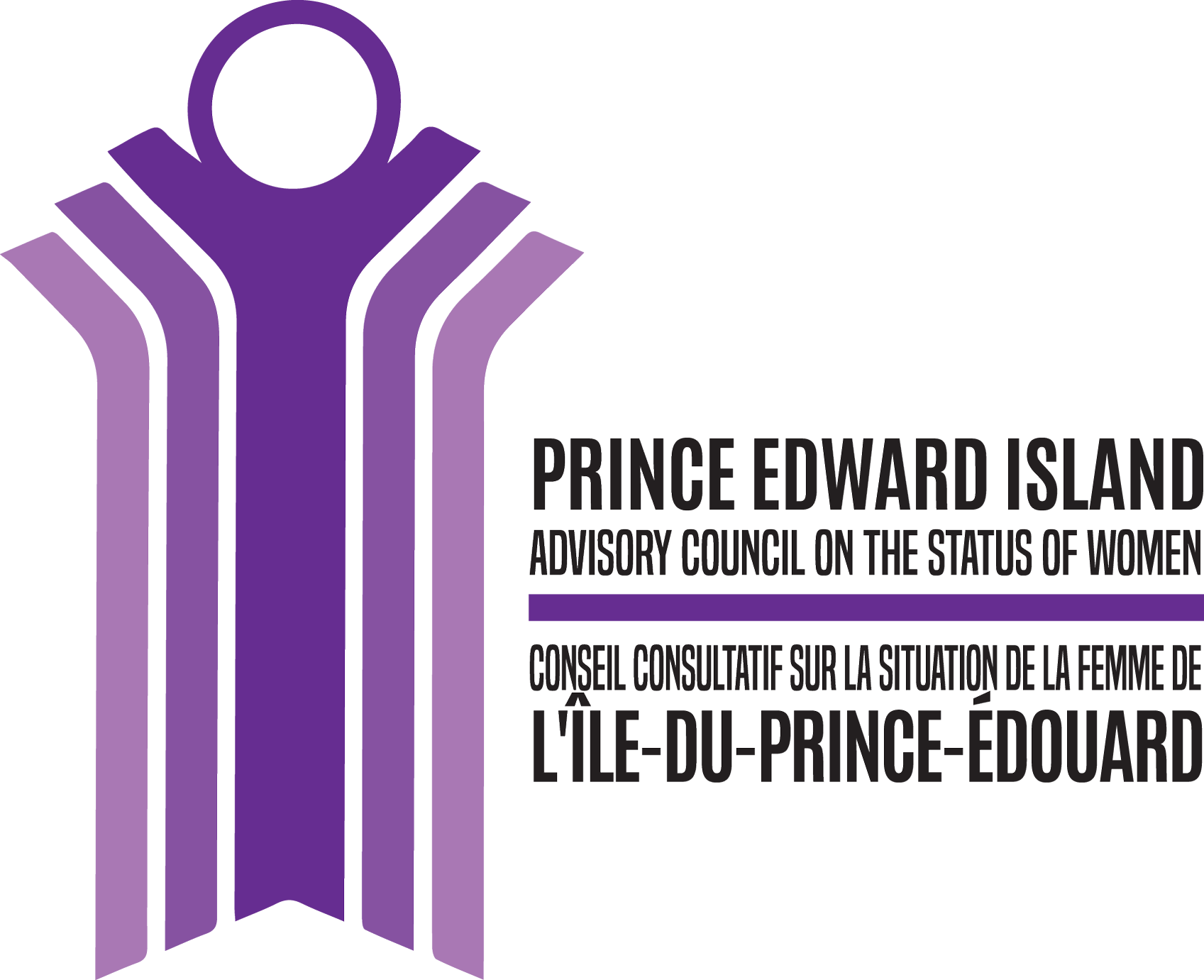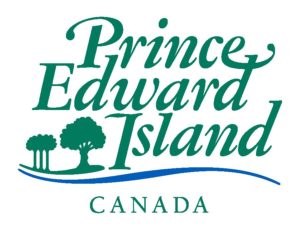One of the priority areas that the PEI Advisory Council on the Status of Women has worked on for many years is the mental health of women and gender-diverse people. Prioritizing mental health is essential for gender equality, but it has not always been given the needed focus on the Island, where access to limited healthcare providers and resources has been an ongoing challenge. Over the years, Council members have sometimes advocated for mental health and addiction services together under the same banner; sometimes, separately; always, though, for both.

Journal-Pioneer coverage of the launch of the first Policy Guide by the PEI Advisory Council on the Status of Women, “Women and Addiction Services,” in June 2001. The launch in Mill River included comments from Council Chair Patricia Roy, counsellor Sr. Anne Gillis who worked extensively with women with addictions, and Council researcher/policy analyst Patricia MacAulay.
In the early 2000s, when the Council decided to focus on proactive policy recommendations to government with a series of policy guides, the very first one was focused on addiction services for women. In 2001, after community consultations and research examining addictions services on the Island, the Advisory Council advocated for change in provincial addictions services to be more equitable. Chairperson Patricia Roy-Ballem stated at the time:
“The Advisory Council does not see a provincial service philosophy that encompasses a wide variety of views regarding addiction and its treatment. Nor do we see a commitment to accessible, effective programming in all the regions. We are particularly concerned with matters at the leadership and policy levels that do not recognize the two basic realities that distinguish between female and male addicts. Women’s bodies and daily lives are very different from those of men and programming must be developed to suit these specific needs of women.”
The Advisory Council’s official recommendation to the provincial government, as summed up in a news release (archived here), was to
“Adopt a provincial program philosophy that recognizes the particular needs of women and their holistic treatment requirements that at least one woman who has experienced addiction and a recovery process be appointed to the Provincial Advisory Committee for Addiction Services a provincial coordinator be appointed to systematically address the barriers that prevent women with addictions from seeking help offer a full continuum of services for women in each of the five health regions that include group programs, individual counseling, drop-in counseling, and child care that is designed to help children manage during the parent’s recovery. The Advisory Council on the Status of Women believes that adopting a holistic, woman-centred philosophy, giving women decision-making power, and allocating staff resources are the key elements in supporting women to recovery and working towards equity in the delivery of addiction services on Prince Edward Island.”
Following from the policy guide series, the Equality Report Card became a key factor in holding government accountable for improving mental healthcare for women and gender-diverse individuals. The Advisory Council created the Equality Report Card in 2007, to assess the provincial government’s progress towards goals related to women’s equality and empowerment on Prince Edward Island. One of the categories that are assessed is healthcare for women and gender-diverse people, including mental health and addictions. The Advisory Council acknowledges that women and gender minorities are disproportionately affected by poverty, a known social determinant of health. While mental health and addictions affect many, women and gender minorities can be vulnerable to unique risks, such as complications in reproductive health, or experiencing gender-based violence and the aftermath of the associated trauma.

The late Dr. Rhonda Matters was the province of PEI’s first chief mental health and addictions officer, appointed in 2013 to work on major change in PEI’s mental health and addictions services. Here she is pictured with past-Chairperson the late Diane Kays in September 2014.
The Report Card and the PEI Advisory Council on the Status of Women advocated for a comprehensive mental health strategy for PEI and a few years later also played a role in the development of a Mental Health Action Plan for Prince Edward Island that launched in 2011.
Advocating for mental health services and supports was a focus and passion for past Chairperson Diane Kays, appointed as Chair in 2011 until her unexpected death in March 2015. Diane had a long history in mental health advocacy as a social worker with vulnerable people and communities, and she was delighted to be appointed as a Member of the Mental Health and Addictions Advisory Council that developed this plan.
Following Diane’s death, Council was fortunate to have another mental health professional as Chairperson. Mari Basiletti, appointed in 2016. Mari, a retired occupational therapist, brought continued insight into the gaps and needs in mental health and addiction services for women and gender-diverse people, with particular insight into the strengths of the many different professional roles involved in mental health care, and the value of bringing diversity to mental health treatment and support, to meet diverse needs.

An appropriately history-themed 2016 photo of past Chairperson Mari Basiletti holding a gender-equality resource she was involved in creating in the 1970s.
PEI’s Mental Health Action Plan for 2016-2026 has five main pillars: “mental health promotion for people of all ages; access to the right service, treatment, and support; an innovative and collaborative workforce; invest early – focus on children, young people and families, foster recovery and well-being for people of all ages.” (See Government of Prince Edward Island Mental Health and Addiction Strategy for 2016-2026.)
Council members continue to take every opportunity possible to provide advice to government on the importance of mental heath and mental wellness for women and gender-diverse people.


